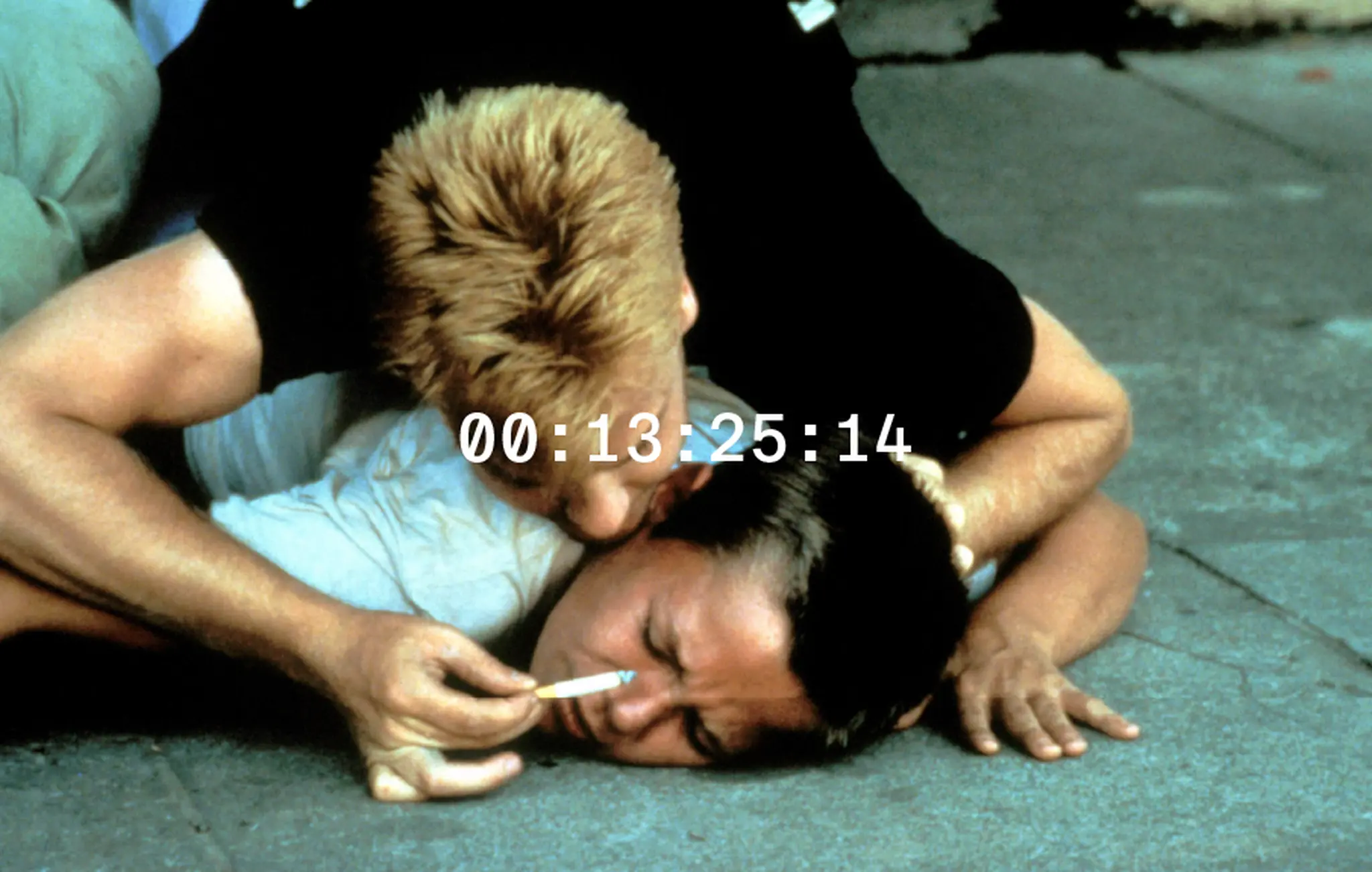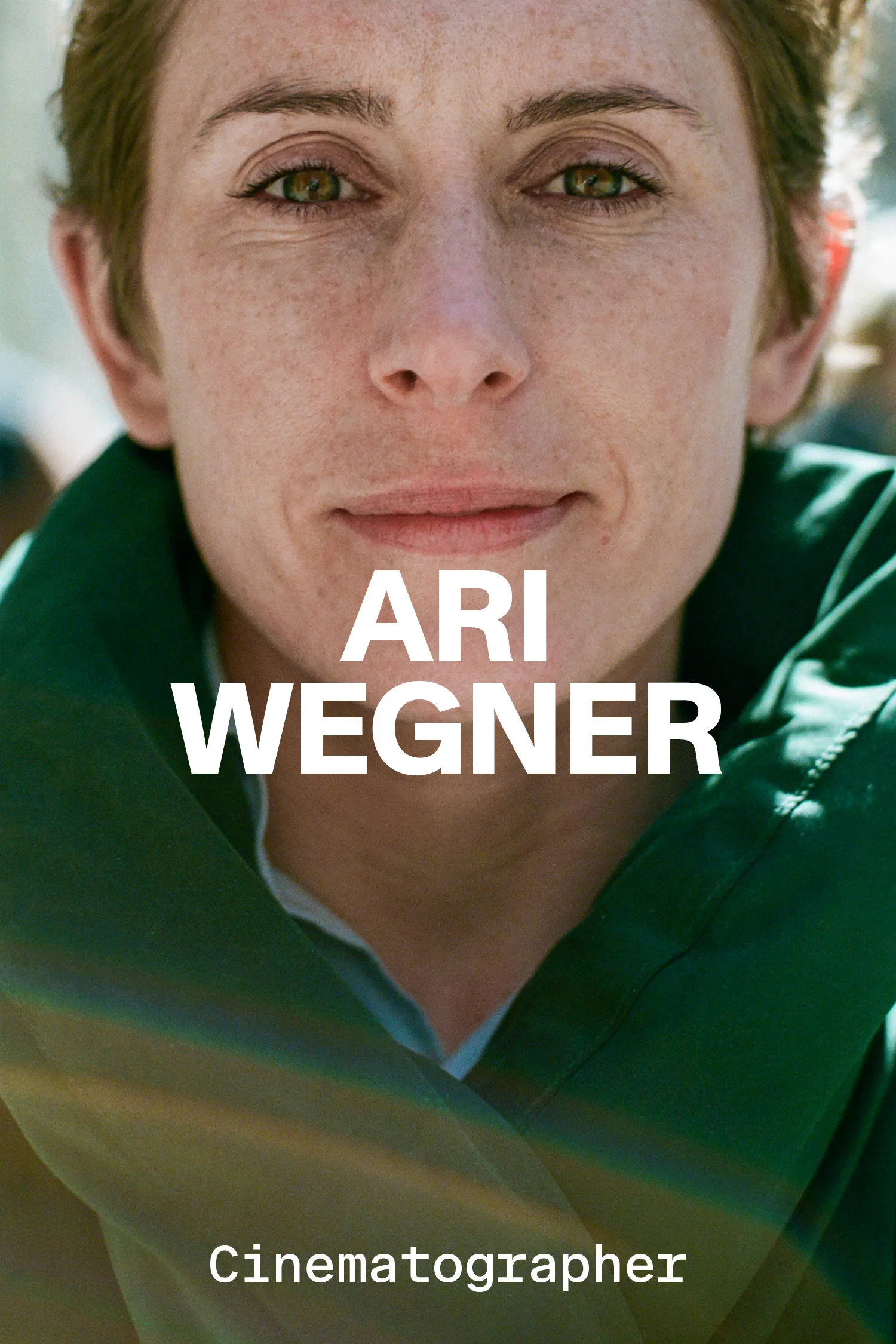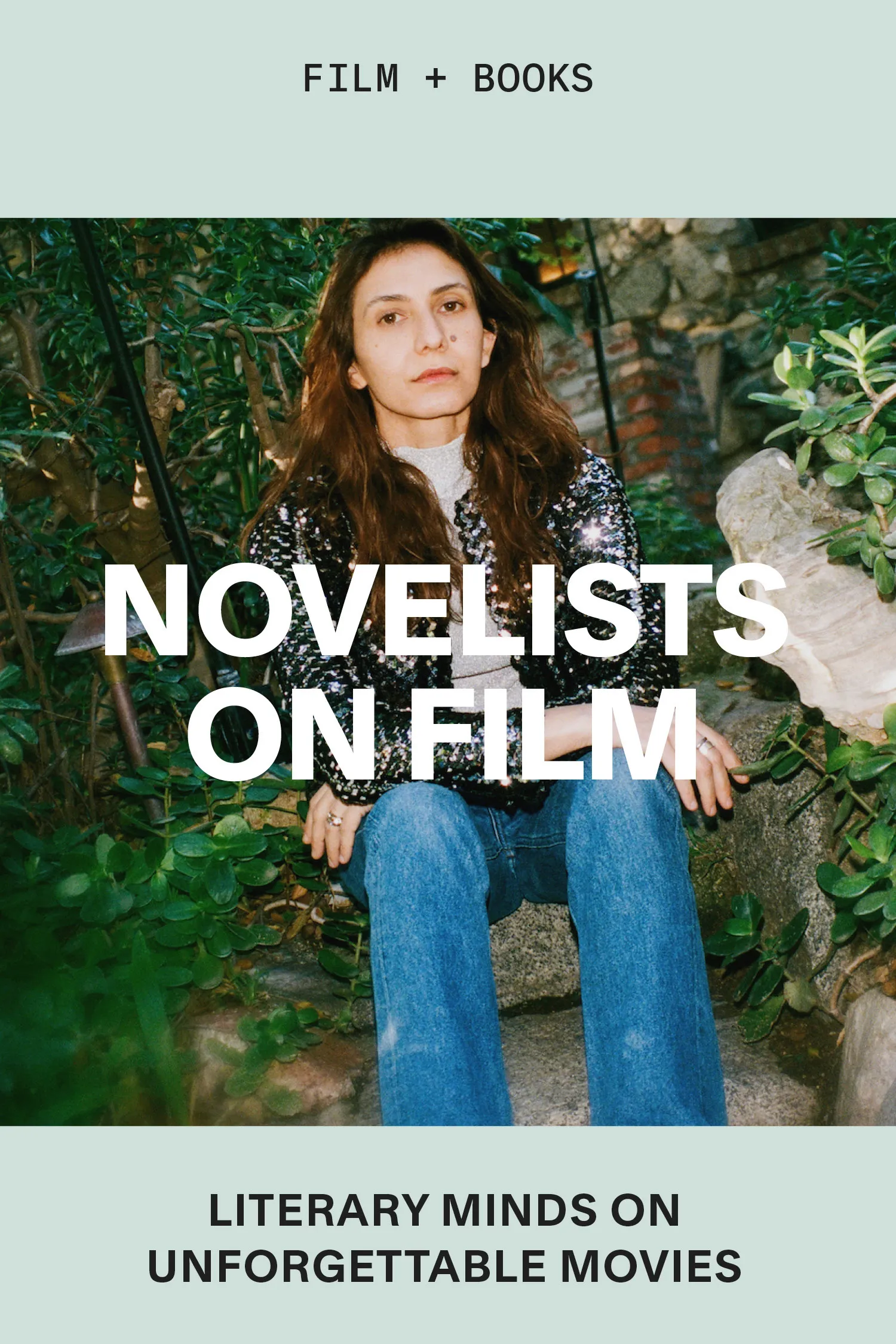I'm Still Alive
By Ottessa Moshfegh


I’m Still Alive
Ottessa Moshfegh
Finding solace in Stand by Me
September 2, 2022
AUTHOR READS
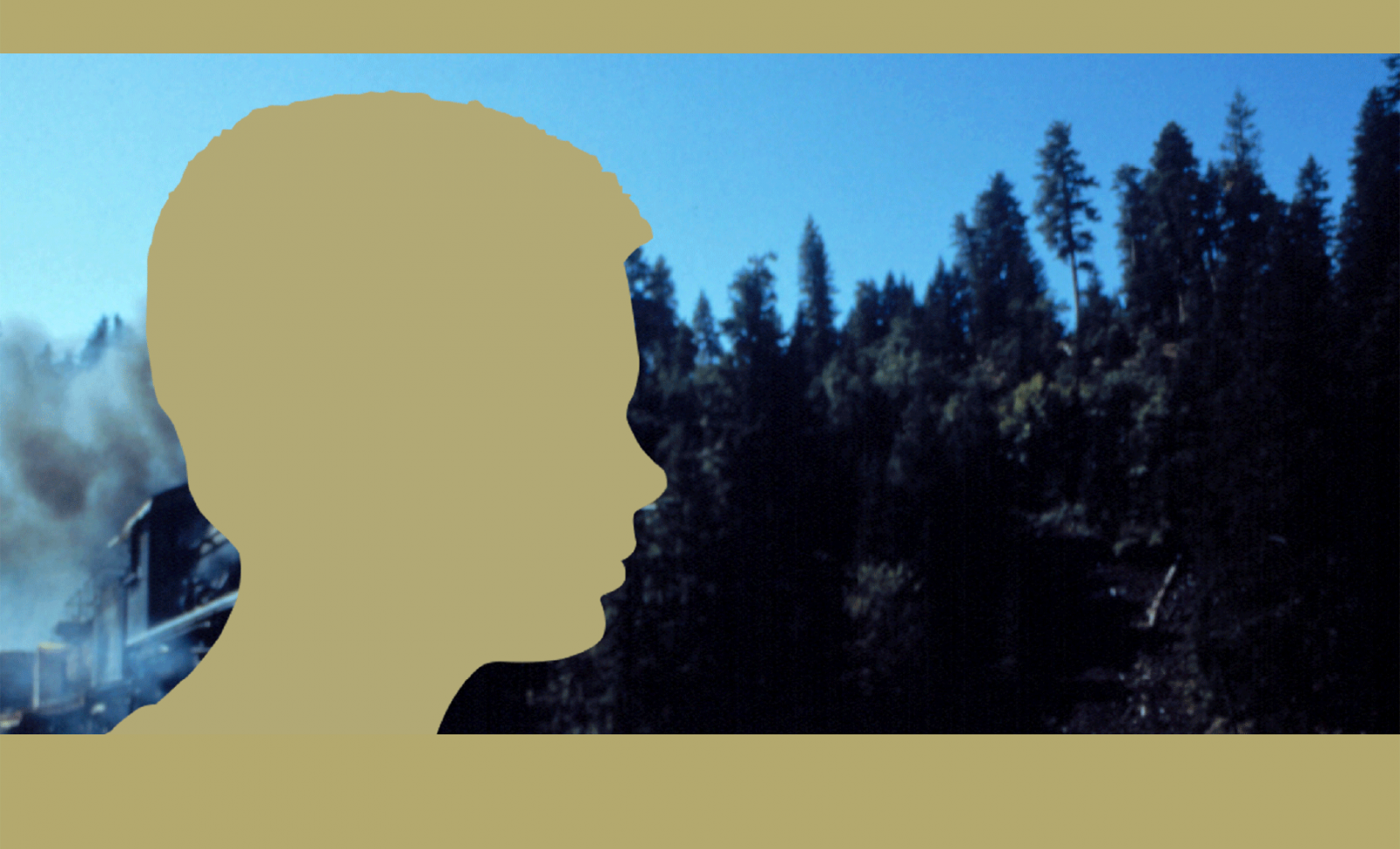
In 2020, I contacted a prop company in Burbank to ask if they could produce an exact replica of my body. I thought having a dupe, an inert doppelgänger, might jog something in my mind and free me from the suffocating sensation of being bound into a human form. Maybe I would love my own body in a new way if I could see it from the outside. Seeing a lifeless version of myself would force me to love the life I had.
It was a horrible, narcissistic idea, but at the time I was desperate. Other than being in lockdown because of the pandemic, I can’t remember what was making me feel this way. The prop maker in Burbank specialized in corpse props for films but sometimes took on private clients. They could make such a prop of my body, and it would cost just over ten thousand dollars. That ridiculous number put me at ease: I didn’t have to go through with this.
I know I’m not alone in being fascinated with dead bodies, but nobody I know shares this preoccupation. I once wrote an article for The New Yorker about a time in my life when I was addicted to looking at pictures of dead people on the Internet. Nobody reached out to say, “Me too.” Nobody called me, concerned about my mental health. I assume people just don’t want to talk about death and their preoccupation with death. Nobody should find that much pleasure in such topics. Since that phone call to the prop company, I’ve realized I’m lucky my fascination only took me that far. In another life, in other circumstances, I could have been a serial killer. (I’m lucky my sexuality never crossed wires with my death fixation.) Almost 20 years later, I no longer look at pictures of dead people. It’s too upsetting now. I know too many dead people. “That article was emotionally dishonest,” a close friend once told me. “You weren’t looking at those pictures to affirm your life.” He’s right. It’s not so simple. I was funneling my existential terror into something tactile and contained, something that could be pointed at, addressed, and thereby curb the terror I feel.
“...ANDREI TARKOVSKY
DIED, AND LADY GAGA WAS BORN.
SO WAS MY LITTLE BROTHER.
THIS WAS 1986.”
“…[T]here was a kind of dreadful exhilaration in seeing things that had troubled me for years come out in a new form, a form over which I had imposed control.” This quotation is from Stephen King’s “The Body,” a story about a fiction writer remembering a childhood journey he took with his buddies to find a dead boy in the woods. It’s as much a story about memory as it is about death and friendship. The story is very moving, and hardly morbid. I like that the “things” the narrator refers to in that quotation seem to have a mind of their own. The form is what the writer can control—that’s it. I feel the same way. For a while I thought I had some agency in choosing what I wrote about. These days, everything seems predetermined. I can’t explain it. Even the essay you are now reading had a fate beyond my intention: A few paragraphs in, I got a call. A young member of my family was dead. Suddenly. Without warning. Found alone in his apartment. Just as I was trying to access the necessary feelings to write this piece, there was a real-life trigger. He died the way so many young people die these days. By accident.
When the film adaptation of “The Body,” Stand by Me, came out in theaters, I was in kindergarten. I didn’t go see the movie, but my older sister did. This was the year the Bears beat the Patriots at the Superdome. The U.S. Senate outlawed genocide. Halley’s comet came close to Earth. Six and a half million people held hands across America to raise money to fight hunger and homelessness. The Celtics, my home team, won the NBA championship. The Oprah Winfrey Show debuted. The Cold War was on. Iran-Contra. Andrei Tarkovsky died, and Lady Gaga was born. So was my little brother. This was 1986. I had no idea that I would become a novelist, that I’d one day live in Los Angeles, that I’d write movies and make phone calls about budgets and casting and contracts and fees. I know now what goes into making a film, but when I was a kid, movies were packaged phenomena, viewable experiences that I could use to imprint on my memory and inspire my imagination. Stand by Me earned more than $50 million at the box office. The New York Times called the Rob Reiner film a “trite narrative,” but it was an instant classic, a coming-of-age story set in 1950s small-town America starring four brilliant teenage actors, one of whom, River Phoenix, would die young and become a legend.
By second grade, I had memorized the Stand by Me soundtrack. This was not because I’d seen the movie yet, but because my gym teacher, Mr. Simkins, played it on a loop for the three months of the year he taught gymnastics at my elementary school. Those songs lodged themselves in my mind at the time I also discovered a compulsive need to berate myself, coupled with a penchant for grueling, self-punishing exercise. I could not climb the rope, which killed me. I was afraid of the pommel horse. I wasn’t bad on the beam, and I enjoyed the uneven bars. I distinctly remember the rotation from one apparatus to another, Buddy Holly, the Del-Vikings, the Silhouettes, my hands burning, my mind telling me to do better, try harder, and the awkward intimacy of Mr. Simkins’s hands gripping the rope under my bare feet, providing me with something to stand on. No one who knew me would ever have called me athletic, but from a young age I understood that physical exhaustion, strain and pain could calm one’s nerves. Ironically, the movie that I had yet to see would have the opposite effect on me: It would grate on the deepest nerve, the one closest to my heart. The only dead person I knew at age six was my paternal grandfather. Where was he? He was nowhere. That terrified me. I tried not to think about it.
When my brother moved from crib to bed, I joined him at night, stealing secondhand comfort from the soft attentions of my mother as she read him bedtime stories. My brother and I had a bond that I’ve never had again with another person: It was a wordless, body-to-body spirit connection. Until I was in the fourth grade, I slept with this boy in my arms. By day, I followed him around and tried to teach him how to be a person. He was unwieldy and heavy-handed and sneaky. He would grow up to be an Army veteran and a student of chemistry, among many other things. I dropped him a lot when he was a toddler. Like I said, I wasn’t a strong kid. Sometimes I wonder if I dropped him too many times, if that is what accounts for his troubles later on in life.
The VHS tape of Stand by Me appeared in our basement around 1989, among the growing hoard of movies my mother found at garage sales and thrift stores. The basement was a private place with an old red shag carpet, spotty lighting, a TV and VCR, and red leather couches. There were always lines of tiny ants marching to the crusts of a sandwich I had left by the TV the night before. I watched TV a lot growing up. The basement was my sanctuary, and the place where I first learned the painful ecstasy of being privately compulsive. When I was down there alone, for hours per day, I put the TV on, jumped rope maniacally, drank a lot of Coca-Cola and ate a lot of Doritos. I was a very shy and quiet kid, holding everything inside—every feeling, impulse, longing—until I was alone, and then I would put myself in a hypnagogic state staring at the screen and go crazy jumping until I was breathless and dizzy and there was nothing left.
But when my brother was down there, I sat still and paid attention. It’s always been easier for me to focus on another person’s experience rather than my own. And I loved my brother. I was in love with him. His eyes and hands and the way he laughed and sneered. He was my favorite person, even though we wrestled and fought regularly. We competed and hated each other. We were best friends. And he liked watching movies with me. We started out watching stupid kid’s stuff at first: Barney. Disney films. Then The Land Before Time kind of broke us open, blew our minds. I can’t watch it now, it’s too upsetting. The cartoon movie is about a kid dinosaur whose mother dies, and then he goes off on a journey with his friends in search of the Great Valley, the only place left with water and food. It’s more heartbreaking than Bambi.
“Did you like it?” I asked my brother after I dried my tears. “Yeah. It’s good.” With just a few words, we understood each other: Life was at once tenuous and tremendous. My sister remembers a conversation she had with him when he was four or five.
Him: “Are mom and dad gonna die?”
Her: “Yes.”
Him: “Are you gonna die?”
Her: “Yes.”
Him: “Is Tessi gonna die?”
Her: “Yes.”
Him: “Am I gonna die?”
Her: “Yes.”
Him: “Shit.”
My siblings had a much more verbally direct line of communication, apparently. I was more withholding, more protective. I didn’t like to cry in front of my brother; I felt like it would make him feel unsafe. I don’t remember him crying, ever, out of sadness—only rage. We had a shared and unspoken sensitivity to existential pain. For me, it was terrifying. For him, it was a challenge.
As we got older, we moved onto comedies. Police Academy 4, History of the World Part I, Trading Places, Burglar, Uncle Buck. Then action-adventure: Indiana Jones movies, The Terminator, RoboCop. Around age 12, I watched Stand by Me alone, had a little nervous breakdown, and then I watched it regularly. This is my tendency with things that make me feel I am losing my mind: I see them once, and then I need to see them all the time. I remember hiding the Stand by Me tape from my brother when we were deciding what to watch one day. He would find it too slow, I told myself. He’s too young. But in retrospect, I know I wanted to shield him from what the movie so beautifully illustrates: You have to divorce yourself from your family, from society, from all learned reason, in order to find out who you really are. But ultimately, we all die. Some sooner than others.
“MAYBE THIS WAS
OUR REAL GOODBYE,
HIM SEEING ME OFF INTO MY
LIFE WITHOUT HIM.”
In Stand by Me, four 12-year-old boys journey into the woods to hunt for the dead body of a missing boy their age, Ray Brower. The boys think that if they bring the body back to their small town of Castle Rock, they’ll be hailed as heroes. For young Gordon (“Gordie”) Lachance, the narrator and protagonist played by a pensive Wil Wheaton, going off in search of the body is an expedition toward knowing and accepting his own weirdness, and accessing the grief around the recent death of his older brother, Denny (John Cusack). For Gordie’s best friend, Chris Chambers (played by River Phoenix, still adorable with baby fat), finding the body is a good deed to prove to everyone that he’s a morally upright kid, and not defined by the bad reputation of his family. For Teddy Duchamp (Corey Feldman), the two-day trek into the wild is a way of honoring his insane World War II veteran father, who is institutionalized for being violent and delusional. “My dad stormed the beach in Normandy,” is Teddy’s defensive refrain. Vern Tessio (Jerry O’Connell) is the one who overhears where the body can be found—by Back Harlow Road, a distance of twenty-some miles from Castle Rock. Vern seems to be motivated toward the body out of pure curiosity and is the most vulnerable to his imagination. The other boys—while they are plagued with the stupidity of youth, for sure—seem to have suffered enough trauma to give them the depth of grown men. This is one thing I loved about the movie: It gave me access into the hearts and minds of creatures that, at age 12, I found to be utterly mysterious and alien. By the time my brother was 12 and I was 17, we talked less and less. It was too hard to traverse the gross divide between my life and his. I was becoming a woman, and he was fully adolescent. We were both nursing particular addictions, too, which made it necessary to be secretive and dishonest with one another. I was a full-blown bulimic. By 17, I was throwing up everything I ate and running five miles a night while the rest of the family was asleep. My brother had discovered our cancer-ridden grandmother’s pain meds. By this point, the basement had so filled up with junk you could barely walk through it, let alone sit and enjoy a movie.
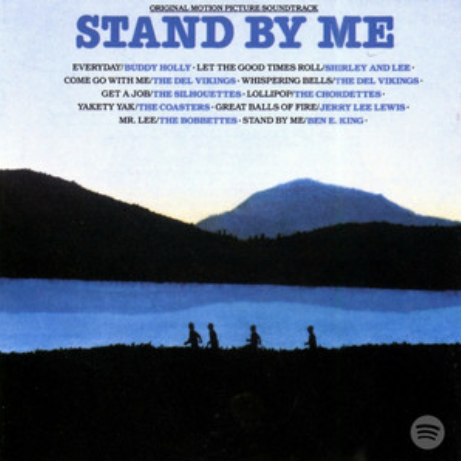
Stand By Me 1986 Soundtrack Complete
If there was a quiz that told you which Stand by Me character you are, I think I’d be Gordie and my brother would be Chris. Stand by Me invites you to think of the four boys as archetypes, not because they’re simplified characters but because they’re each living out a distinct purpose and karma. Teddy is the wild one. Vern is the innocent. Chris is the peacemaker, the friend. And Gordie is the observer, the thinker, the chronicler of this history. The movie is framed some 25 years later by an adult Gordon (Richard Dreyfuss). At the opening of the film, he’s sitting in his car after reading a newspaper article reporting that his old friend Chris was stabbed to death while trying to break up a fight at a fast-food restaurant. Adult Gordon starts recalling the childhood hunt for Ray Brower’s body, narrating the story as we watch it play out onscreen. Thus, Stand by Me is a kind of meta-fiction, a grown man remembering a past experience by writing about it. There’s something timeless and perfect about the cadence to the film, and maybe that’s why The New York Times thought it was trite, because it captures the way memory condenses and perfects the past into a story with meaning.
I presume that Rob Reiner changed the title from “The Body” to Stand by Me because the film was supposed to have mass appeal, and it did. It’s an excellent adaptation. It has heart, wisdom and humor that play like a great song on the radio. King himself said it was the best film adaptation of anything he’d written. King has also said that the story is about him and a friend when they were young. One curious change made in the adaptation was that while in “The Body” Castle Rock is a small town in Maine, in Stand by Me it’s a small town in Oregon. I wonder if, like the title change, this was to lighten up the mood a bit. Maine is a spooky place, and Bangor, where King still has a house, is haunted with mystery, nostalgia and loneliness. I know this because when I was 18 my mother bought an abandoned Girl Scouts camp outside of Bangor, and I spent many summers there. My recent novel Death in Her Hands takes place in a fictionalized Bangor-type town. The settings for several stories in my short story collection were inspired by that town as well. The woods there are teeming with masculinity and dread.
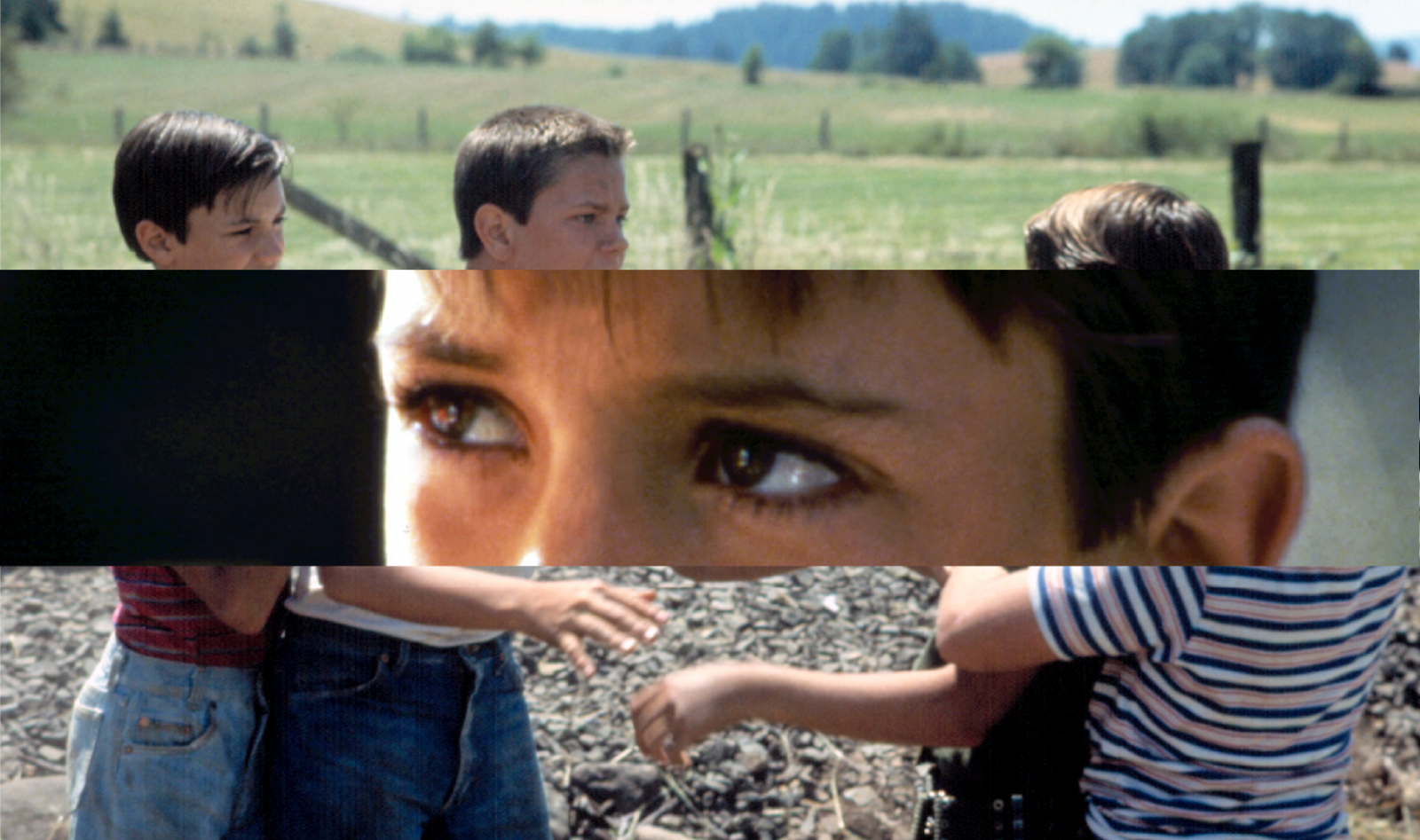
One thing has always gnawed at me. In the movie and the story, it is said that the dead boy had wandered off to pick blueberries and got hit by a train near Back Harlow Road. How does a kid picking blueberries get hit by a train? Much is made of the threat of the train in the film: Early on in the boys’ journey, they barely outrun one as it bears down on them while they’re crossing a narrow bridge. Gordie feels it coming by laying his hand on the tracks. The place Ray Brower is found isn’t near a bridge or anything like that. And I didn’t see any blueberry bushes. It’s the one unknown in the story that leaves me dissatisfied. But it makes sense that the pile of gold at the end of the rainbow is a mystery. The man behind the curtain. The ever after. Death is like that, completely real and absolutely unknowable. Looking at a dead body is like looking into the future, into a void made of substance. When the boys finally find the body of Ray Brower, Gordie is calm. “None of us could breathe. Somewhere underneath those bushes was the rest of Ray Brower.” There’s an eerie, drawn-out silence, the rustle of leaves. Peace. Gordie sits on a log by the river and cries while the other boys look for branches to build a stretcher for the body. Chris stops and sits down next to him.
“Why did he have to die, Chris?” Gordie asks. “Why did Denny have to die? Why?”
“I don’t know.”
“It should have been me.”
“Don’t say that.”
“It should have been me.” Gordie collapses and sobs on his friend’s shoulder.
In an effort to console him, Chris says, a bit patronizingly, “You’re gonna be a great writer someday, Gordie. You might even write about us guys if you ever get hard up for material.”
At this, Gordie lifts his head and jokes, “Guess I’d have to be pretty hard up, huh?”
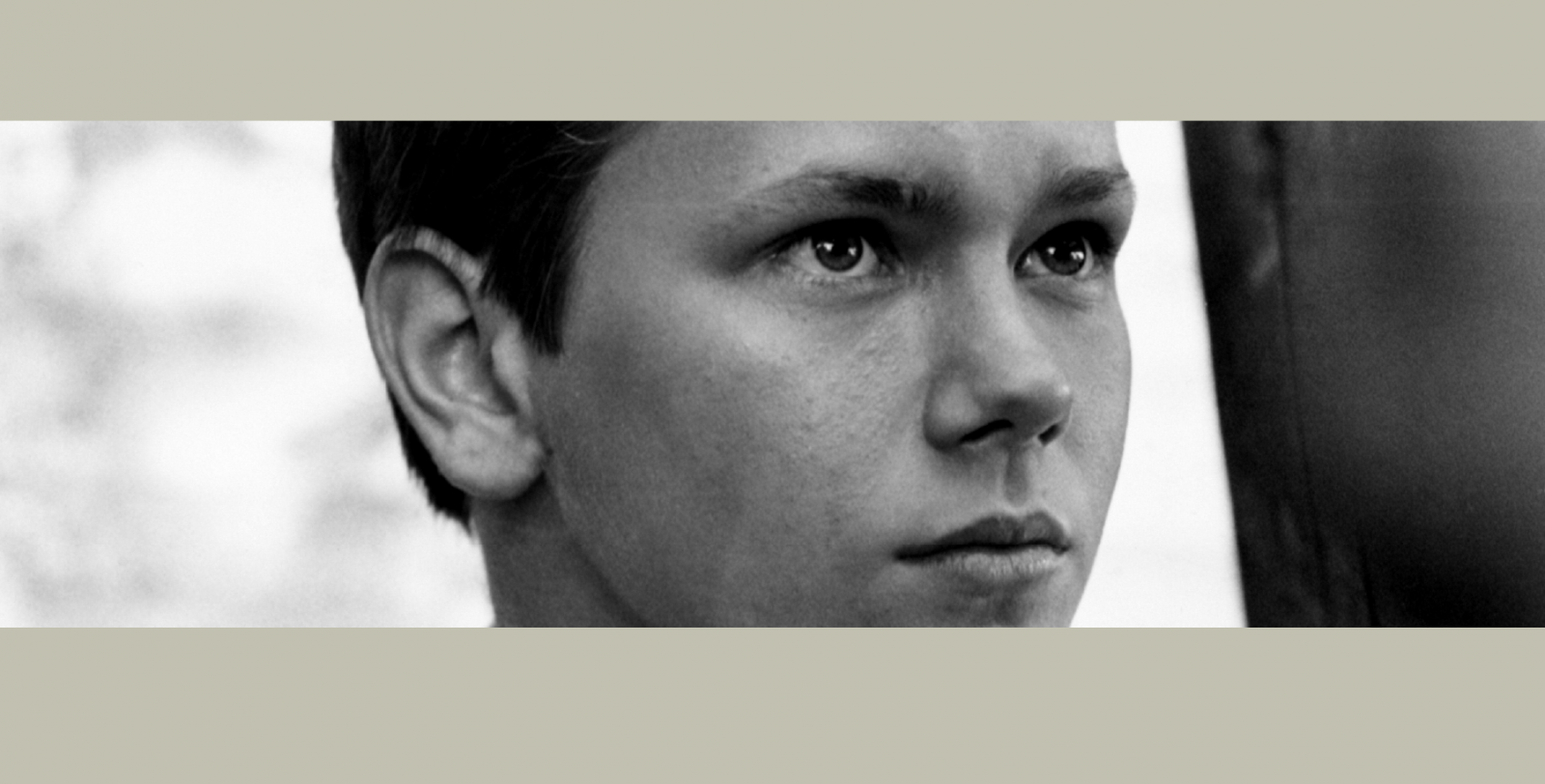
Despite my fascination with dead bodies, I didn’t see one in person until I was 36. Sometimes I wish I’d never seen it. When I feel heartbroken and angry, when I miss my brother, I want to go back and erase the experience from my memory, to excise it like a cyst and squash it under my heel. To this day it tortures me. But I am glad that I didn’t shy away from my last chance to see him. I kissed him and smeared my tears across his cheeks. I petted his hair. I felt for his hand under the tight muslin sheet and wept and spoke to him. He was 30. I don’t like thinking about it. My husband has a line in his new book that I love: “Having a brother was the most important thing, more important than having a religion or a country.” I have no religion. I reject the notion of having a country. But I had a brother. He was my religion. He was my country.
I rewatched Stand by Me this week remembering sitting with him in the basement, watching his face the first time I showed him the movie. He seemed unshaken. He said it was “pretty good.” He was cool like that. My brother was tapped into a deep current of something I can’t describe. It is the essence of God and art and everything I know to be sacred, but in a dark and twisted way. The black water of a tangled river at night that knows exactly where it’s going. My brother knew I was tapped into all that too. He dealt with the current by diving headfirst into it. He was powerful, churning the waters so that they undulated more and more violently and quickly toward his ultimate destination. I, on the other hand tried—and try—to climb out of the water. When I fall back in, I hide in the shallows, grab onto flimsy reeds and slippery rocks to keep me from being swept away. I always saw this tendency in me as a weakness.
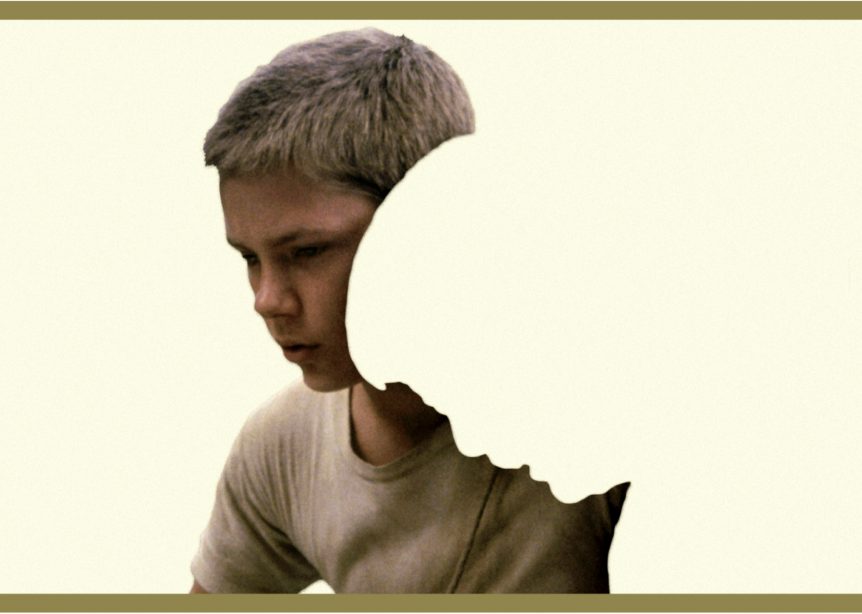
“You don’t know how lucky you are,” he told me when he was 16, manic in an intersection. He had run away from home and spent three nights missing in New York City. When he called me, I rushed to meet him in Times Square. He had covered himself in dirt. “I wanted to feel the earth on my skin,” he’d explained. “Like being buried, but I’m still alive.”
“Come here,” I said, and pulled him to the curb. “Stay here with me,” I said, and hooked my arm around his. “Don’t run away again.”
He kind of smirked and looked past me as I pulled out my phone to call our parents.
“You’re smart and beautiful and you can do anything,” he told me. “You’re lucky, okay?”
I think that was the last time we held each other. He smelled warm and metallic and different. Maybe this was our real goodbye, him seeing me off into my life without him. We barely talked after that.


